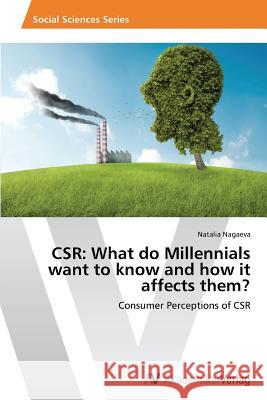Csr: What do Millennials want to know and how it affects them? » książka
Csr: What do Millennials want to know and how it affects them?
ISBN-13: 9783639643749 / Angielski / Miękka / 2014 / 204 str.
In academic literature there is evidence that Corporate Social Responsibility (CSR) affects consumer's loyalty to the firm, its attitude towards the firm and may result in purchasing intentions. However, the numerous researchers suggest that the low consumer awareness of CSR initiatives significantly narrow the target audience, while consumer's scepticism reduces the positive effect of its implementation. The current research provides empirical evidence for the CSR communication framework by Du et al. (2010) and follows their suggestion to investigate how a company can best communicate its CSR initiatives to young adults - Millennial Generation (18-30 years old). Basing its conclusions on the CSR communication framework and on the analysis of the results of three focus groups, this study suggests practical recommendations to adjust CSR communications in order to attract the attention of the target group and overcome the scepticism barrier. Practitioners can use the results of this work to consider communication practices that positively influence consumer perceptions of CSR activities.
In academic literature there is evidence that Corporate Social Responsibility (CSR) affects consumers loyalty to the firm, its attitude towards the firm and may result in purchasing intentions. However, the numerous researchers suggest that the low consumer awareness of CSR initiatives significantly narrow the target audience, while consumers scepticism reduces the positive effect of its implementation. The current research provides empirical evidence for the CSR communication framework by Du et al. (2010) and follows their suggestion to investigate how a company can best communicate its CSR initiatives to young adults - Millennial Generation (18-30 years old). Basing its conclusions on the CSR communication framework and on the analysis of the results of three focus groups, this study suggests practical recommendations to adjust CSR communications in order to attract the attention of the target group and overcome the scepticism barrier. Practitioners can use the results of this work to consider communication practices that positively influence consumer perceptions of CSR activities.











